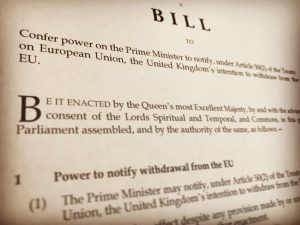By Dr Michael Naughton, Reader in Sociology and Law (University of Bristol Law School).
 The BBC Panorama programme, Behind Bars: Prison Undercover, aired on Monday 13 February 2017. Culled from footage from an undercover reporter in HMP Northumberland, it claimed to “reveal the reality of life behind bars in Britain’s crisis-hit prison system.”
The BBC Panorama programme, Behind Bars: Prison Undercover, aired on Monday 13 February 2017. Culled from footage from an undercover reporter in HMP Northumberland, it claimed to “reveal the reality of life behind bars in Britain’s crisis-hit prison system.”
Leaving aside the obvious methodological issues with such a claim, i.e. that such a generalisation cannot be made from a few insights in a single, adult, male, category C, private prison, what we got, instead, was an entirely biased, one-sided view. On this occasion, it was the fears of clearly overworked and overwhelmed prison staff that was the central focus of concern. The narrative depicted was simplistic: prisoners are both out of control and in control of the day to day running of prisons, supported by images of drug taking, drunken and abusive prisoners. A strong case was being made for more prison officers, which is totally justified in the context of overcrowded prisons and savage cuts to prison staff.
A major problem was that this was at the expense of a more balanced programme that took account, also, of the prisoner side of the story – the desolation, monotony and periods of sheer terror of everyday life behind prison bars. This is well documented in the research and it might, also, go some way, at least, to contextualising and/or explaining the images of the relatively small handful of misbehaving prisoners that were selected to persuade viewers to accept the underpinning narrative without question. (more…)









